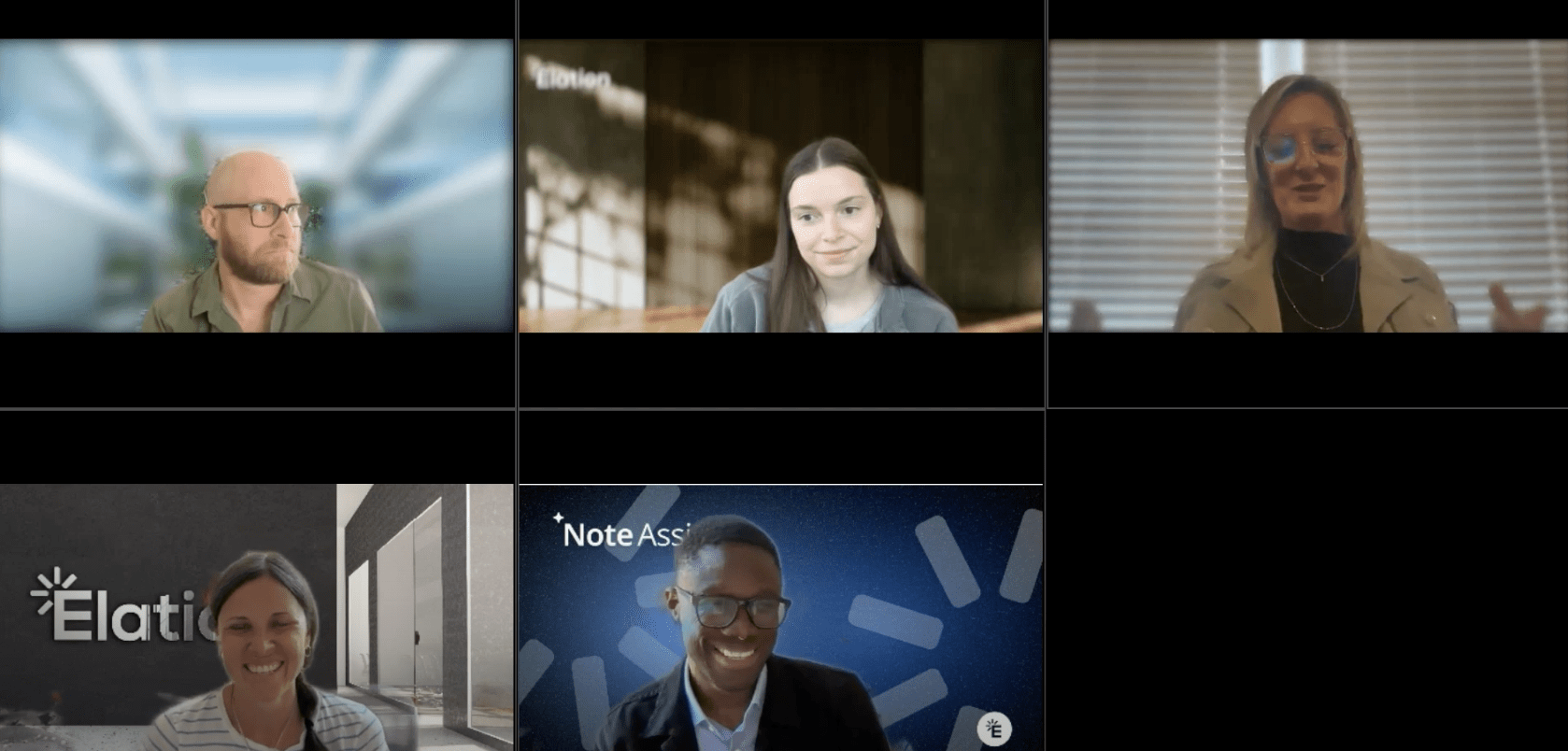A Behind-the-Scenes Look: How Elation Health is Building AI for Primary Care

In a recent webinar, Elation's development team offered a transparent look at how they are approaching AI. The discussion featured Ashley Rogers, Chief Product Officer; Dr. Sara Pastoor, a family physician with 27 years of experience; Phill Tornroth, VP of Engineering; Kenworthy Uleanya, Staff Product Manager; and Katie Reinders, Staff Designer. They shared their Clinical-First design philosophy and explained how AI is being built to support, not replace, clinical practice.
The core message? Elation's goal remains unchanged: to remove every barrier between clinicians and the exceptional care they provide to patients. The conversation covered everything from the problems AI is solving to how Elation ensures the safety and usability of its tools.
The Problems AI is Solving for Primary Care
AI is often seen as flashy technology, but Elation is focused on using it to solve real, long-standing workflow challenges. The team believes AI is a new tool that can help create "more space" for the physician-patient relationship and address clinical burnout.
According to the panel, AI can help with:
-
Reducing Administrative Burden: Tools like AI scribes can create notes from a patient conversation, allowing the physician to be fully present with the patient without the distraction of a laptop.
-
Enhancing Clinical Excellence: AI can proactively offer suggestions, such as helping a physician clean up a patient's medication list.
-
Improving Patient Intake: Features are being developed to convert paper forms into structured, digital forms on Elation.
-
Surfacing Clinical Insights: AI can work alongside the search function in a patient's chart to quickly highlight important information, helping physicians make better decisions.
Building Trust and Ensuring Safety
A major concern for physicians is trusting new technology. The Elation team addressed this head-on, explaining that their approach to AI is no different from their non-AI development—it's built around the clinician's experience. Dr. Pastoor, who serves as "user zero" and tests features with her own patients, emphasized the importance of a "healthy skepticism" and the "trust but verify" approach.
Data Security and Privacy
Elation is committed to protecting patient data. They have policies in place to uphold HIPAA compliance and use principles of "least access" to ensure data is handled with the utmost respect. Elation signs agreements with all third-party AI vendors to guarantee that customer data is not retained or used to train their models. When building AI features, they are also careful not to give the AI irrelevant context, such as demographic information, to prevent bias.
The Human in the Loop
A cornerstone of Elation's AI philosophy is keeping the human in the loop. Nothing is automated without a physician's review and approval. The platform also features built-in feedback mechanisms, like thumbs up/down icons, that send user feedback directly to the product development teams, allowing for quick adjustments.
AI Native vs. Bolt-On
Elation believes in building AI natively into its platform rather than bolting on third-party solutions. This approach allows them to:
-
Tailor Solutions: Create features specifically for the unique needs of primary care and longitudinal care workflows.
-
Leverage Context: The AI has access to the full patient chart, enabling it to provide more accurate and relevant suggestions. For example, a feature like Wordsmith can generate letters or notes by pulling context from the patient's chart, saving the physician from having to copy and paste information into a separate platform like ChatGPT.
-
Reimagine Workflows: By building AI in-house, Elation can fundamentally reshape workflows, questioning if certain features even need to exist in their current form.
What's Next?
Elation has already released several AI-powered features and has more on the way. The team is also working on features for patient intake and clinical insights. Looking ahead, Elation is excited to develop capabilities for autocoding to help physicians get the right credit for the care they provide.
We encourage users to experiment with these new features, but they are not mandatory. We have strategically designed them to be unobtrusive and have placed them in the platform so they don't get in the way of a physician's existing workflow. The team believes that as AI becomes more integrated, the line between what is and isn't AI will continue to blur, making it a seamless part of the clinical experience.
Ready to see how Elation Health's Clinical-First approach to AI can support your practice? Discover how Elation Health AI-powered EHR software features are designed to reduce administrative burden, enhance clinical insights, and reimagine workflows without ever compromising patient care.
